Public/Private Partnership in Indonesia Provides Life-Saving Transport for Women in Labor
Published on October 28, 2022
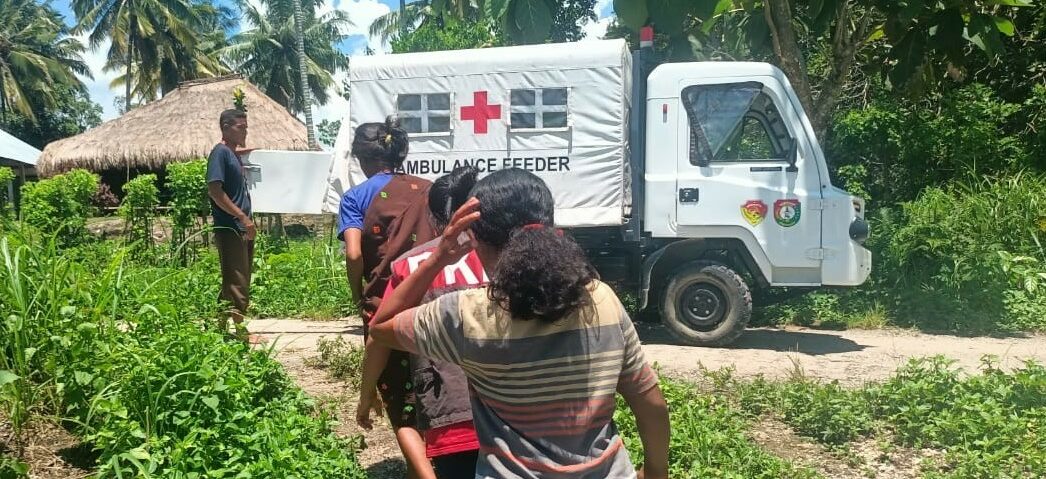
by Melva Aritonang, Communication Specialist, MOMENTUM Country and Global Leadership Indonesia
The villages of Matakapore and Hangalande in Indonesia’s East Nusa Tenggara Province had a problem. Due to their remote location and the difficulty of finding safe and reliable transport, many mothers had to give birth at home—leading to a higher rate of maternal and newborn deaths.
Remote areas in East Nusa Tenggara Province, a region in eastern Indonesia made up of more than 500 islands, struggle to transport patients to health facilities. Long distances, lack of public transportation, and difficult road conditions make it challenging for rural communities to access health services.
Ermina Andriani Bara lives in Matakapore village on the island of Sumba, and Evilia Mburhu lives in Hangalande village on the island of Flores. Both are midwives in their remote rural communities and assist pregnant women to receive prenatal care and deliver their babies safely at a health facility.
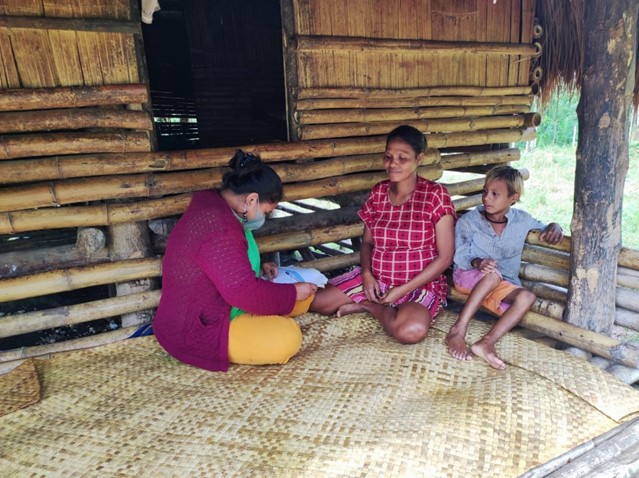
“In the past, sometimes family members had to rent a motorbike or a car to transport pregnant women or babies to the health center or to an access point so that a conventional ambulance could pick them up,” said Ermina. “Some families are poor and cannot afford to rent a motorbike or car. Many mothers have to give birth at home.”
“Difficult road conditions and long distances have also caused some women to give birth on the road, not yet reaching the health center,” agreed Evilia. “This is dangerous and life-threatening for the mother and the baby.”
To overcome this challenge and reduce the high rate of preventable maternal and newborn deaths in the area, MOMENTUM Country and Global Leadership collaborated with the Ministry of Industry, provincial and local officials, health centers, and the private sector to establish a rural ambulance system using a vehicle called the Rural Multipurpose Mechanical Tool (Alat Mekanis Multiguna Pedesaan or AMMDes). AMMDes is a vehicle produced by Indonesian company PT Kreasi Mandiri Wintor Indonesia in partnership with the Ministry of Industry and is designed to travel over steep roads to reach remote villages under challenging conditions.
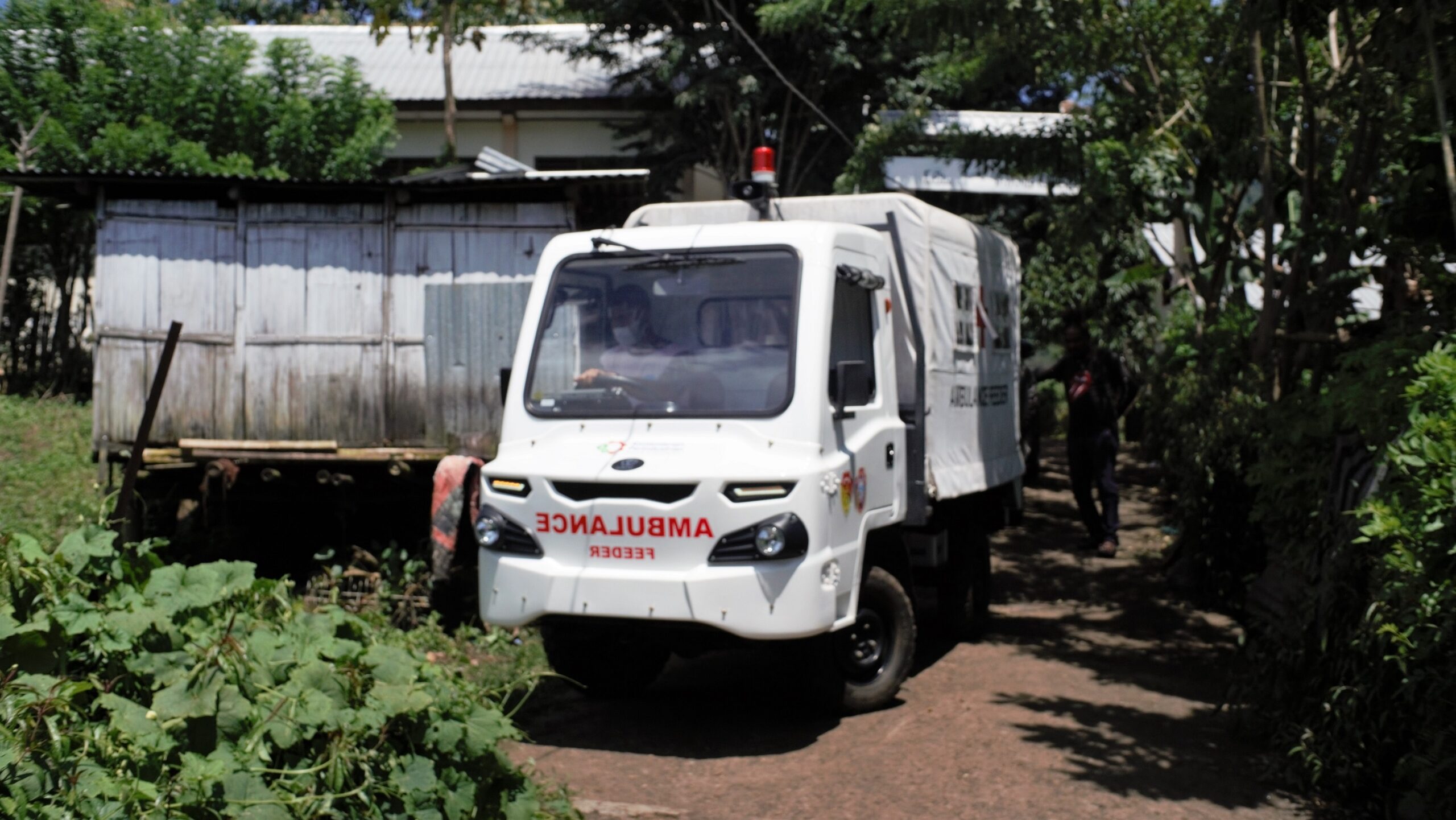
A second critical component of this initiative is to increase family and community awareness about danger signs during pregnancy and in the first month after birth, while promoting the importance of safe deliveries in health facilities. Ermina and Evilia help pregnant women and their families to access and use the ambulance. They explain the process, coordinate pick-ups, and ensure the women have their documents and supplies ready when it’s time to make the trip.
The system is being piloted in six villages, including Matakapore and Hangalande, and each village has its own vehicle. In Matakapore, Maria Capakaka used the AMMDes system to give birth at the health center to her third child in December 2021.
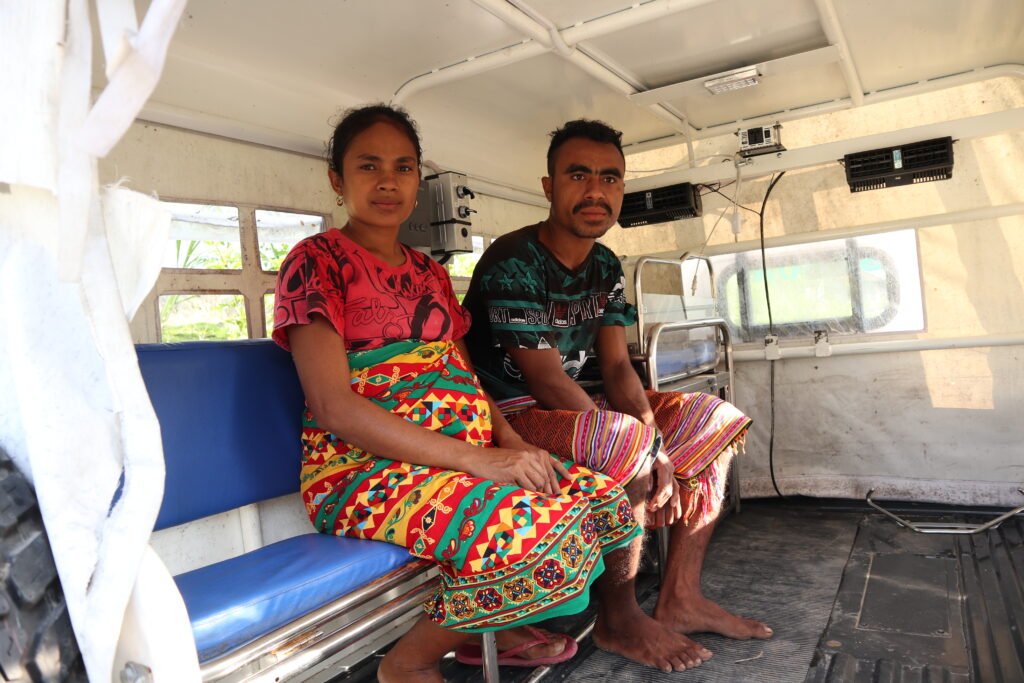
When Maria was ready to give birth at midnight, she sent her husband to the midwife to call for help. The midwife contacted the ambulance, which arrived 30 minutes later to drive her to the health center. “Once inside the AMMDes, I immediately laid down holding my stomach in pain,” she said. “I felt nervous. The road was very bad so we had to cross it slowly. Inside the AMMDes there is a baby cradle, there is equipment, there are medicines. I stayed one night at the health center after giving birth, then the AMMDes took me back home.”
When Riska Farsiti of Hangalande started labor, Evilia immediately contacted the ambulance driver. They reached the health center within an hour and Riska gave birth to her first child nine hours later.
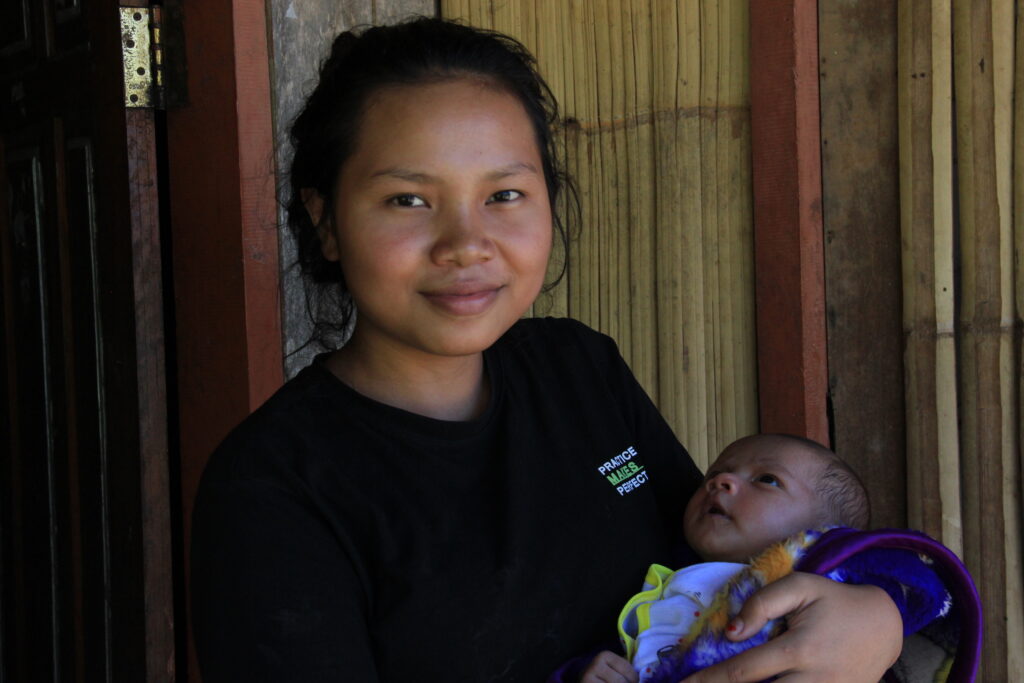
“The ambulance is not cramped, and it does not break down even though the road is really bad. What’s more, we don’t have to pay to rent the ambulance,” says Riska.
The ambulances are also used to drive pregnant women for their regular exams. Midwives like Ermina track the appointments of pregnant women in their area and arrange rides to attend regular check-ups at the health center or receive ultrasounds at the hospital.
Before the AMMDes, many pregnant women skipped their ultrasound exams and regular appointments due to logistical difficulties. Oktavianus Umbu Halato Kana, the leader of Matakapore, initiated the use of the ambulance service in his village. He was motivated by the recent case of a woman who lost her pregnancy at five months due to heavy bleeding and an inability to get to the hospital. “This made me unable to sleep for several days,” said Oktavianus.
To support the sustainability of the AMMDes system, MOMENTUM is working with local officials to draft regulations and mechanisms for the use, financing, and monitoring of the ambulances.
“We are committed to maintaining the AMMDes from village funds, including for fuel, oil, driver, and operator fees,” said Oktavianus. “This is very important to save mothers and newborns.”
In Hangalande, from January to September 2022, 75 pregnant women utilized the ambulance service. Four nearby villages recently signed an agreement to share the costs of the AMMDes, allowing them to benefit from the service as well. More villages in the local sub-district are expected to follow suit soon.

